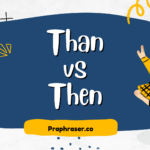Have you ever wondered why English spelling is sometimes like a puzzle, especially when comparing British and American English? Let’s talk about “favourite” and “favorite” in this article. We’ll explore where they come from, how they’re different, and when to use each spelling. It’s all about understanding the language differences between Favourite vs Favorite.
A Quick Look at “Favourite” and “Favorite”
| Aspect | Favourite | Favorite |
|---|---|---|
| Spelling | British English | American English |
| Vowel Usage | Extra ‘u’ | Standard spelling |
| Usage Frequency | Common in UK | Common in the US |
| Official Standards | Oxford English Dictionary | Merriam-Webster Dictionary |
What is the Historical Background?
Let’s take a trip back to the 18th century when Samuel Johnson tried to sort out English spelling. While he aimed for standardization, regional quirks persisted. As the British Empire expanded, British English stuck with its traditional spellings, while American English started simplifying things.
What is the Spelling Difference?
1. Extra ‘u’:
The most obvious difference is the extra ‘u’ in “favourite.” It’s a typical British thing, seen in words like “colour” and “honour.”
Example: She prefers the British way, with “favourite” and “colour,” while he’s all about the American “favorite” and “color.”
2. Vowel Usage:
Another quirk involves the ‘ou’ combination in the British spelling versus the straightforward ‘o’ in the American version.
Example: Going to the theatre in London is her thing, but he’d rather catch a show at the theater in New York.
What is the Regional Usage?
So, where you are makes a difference. If you’re in the UK, Canada, or Australia, you’re likely using “favourite.” If you’re in the US, it’s probably “favorite.”
Here is a table for better understanding:
| Region | Predominant Spelling |
|---|---|
| United Kingdom | Favourite |
| United States | Favorite |
| Canada | Favourite |
| Australia | Favourite |
Quick Tip: In British English, think “Favourite” with the extra ‘u’ like “you.” In American English, it’s “Favorite,” dropping the ‘u’ as if saying “favor” without the ‘u.’
What are the Official Standards?
Dictionaries have a say in this spelling business. The Oxford English Dictionary vouches for “favourite” in British English, while the Merriam-Webster Dictionary stands by “favorite” in American English.
Do we Use Favourite or Favorite as a Noun, Verb or Adjective?
Let’s explore the usage of “favourite” and “favorite” in sentences, breaking down their parts of speech with examples:
Adjective:
Favourite: It is used as an adjective to describe something that is preferred or liked more than others.
- Example: Pizza is his favourite food.
Favorite: Similarly, “favorite” serves as an adjective with the same meaning in American English.
- Example: Ice cream is her favorite dessert.
Noun:
Favourite: When used as a noun, it refers to a person or thing that is preferred or liked the most.
- Example: My cat is my favourite; I love spending time with him.
Favorite: In American English, “favorite” is also used as a noun with the same meaning.
- Example: The movie was a big hit and quickly became everyone’s favorite.
Verb:
Favourite: While “favourite” is primarily an adjective or noun, it’s not commonly used as a verb.
Favorite: Similarly, “favorite” is not commonly used as a verb in standard English.
What are the differences between “Favourite” and “Favorite”?
The main difference lie in the extra ‘u’ in British “favourite,” the ‘ou’ vs. ‘o’ in vowel usage, and regional preferences. The UK favors “favourite,” while the US leans towards “favorite.” Dictionaries, like the Oxford English Dictionary and Merriam-Webster, solidify these linguistic differences.
Conclusion:
In summary, the difference between “favourite” in British English and “favorite” in American English comes from historical quirks and what people like in different places. The extra ‘u’ in “favourite” and the ‘ou’ versus ‘o’ in vowel use show these differences. If you’re in the UK, you probably use “favourite,” and in the US, it’s likely “favorite.”


